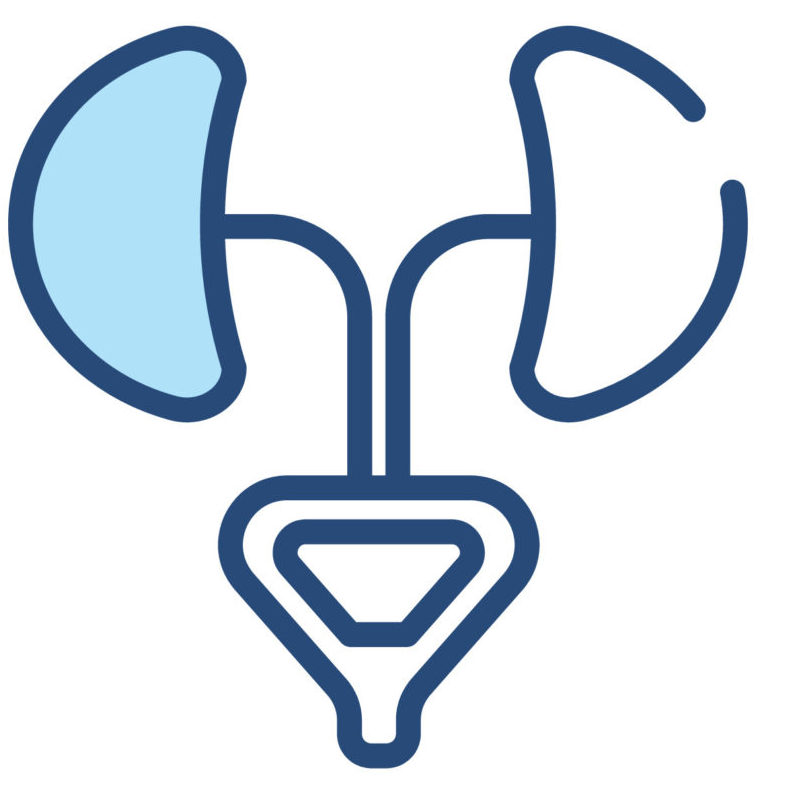Prostate Enlargement
Benign prostate enlargement (BPE), or benign prostate hypertrophy (BPH) is a normal part of aging and common in men after the aged of 50. Urine passes through a channel in the prostate gland to leave the bladder, so enlargement of the prostate may cause problems, such as a weak flow, delaying starting to pass urine, incomplete emptying or needing to strain. Men may also find that they pass urine more often, needing to rush to the toilet or getting up at night.
Some men find that they suddenly cannot pass urine, known as urinary retention. This requires urgent insertion of a urinary catheter.
Although symptoms of prostate enlargement are common, they can rarely be associated with prostate cancer.
Investigations
A PSA test and prostate examination. These are the two most common initial tests, initially to look for signs of prostate cancer, but can also detect inflammation or enlargement of the prostate. Your GP or Urologist may also check your urine to exclude any sign of infection.
A urologist may also do further tests, including urine flow measurements, ultrasound scans or a camera inspection of the bladder (flexible cystoscopy). These will be discussed in detail with you by your consulltant.
Treatments:
Your GP or Urologist may recommend some simple lifestyle interventions initially, such as reducing caffeine and alcohol intake. Drinking less fluid before bedtime may also help. Treating constipation is also important.
Tablet medications to relax or shrink the prostate may be prescribed. These include alpha-blockers, such as Tamsulosin or Alfuzosin; tablets such as Finasteride or Dutasteride may be prescribed if the prostate is particularly enlarged. Some men experience side effects from these tablets, including sexual dysfunction. Bladder overactivity can be treated with different tablets. Your GP or Urologist can discuss the advantages and disadvantages of each medication.
If lifestyle and tablet medications do not help and symptoms are still bothersome, the next step is to consider surgical options. Mr Cohen has extensive knowledge of the procedures below and will discuss all appropriate options, including risks and benefits with his patients.
These include:

Contact Us

